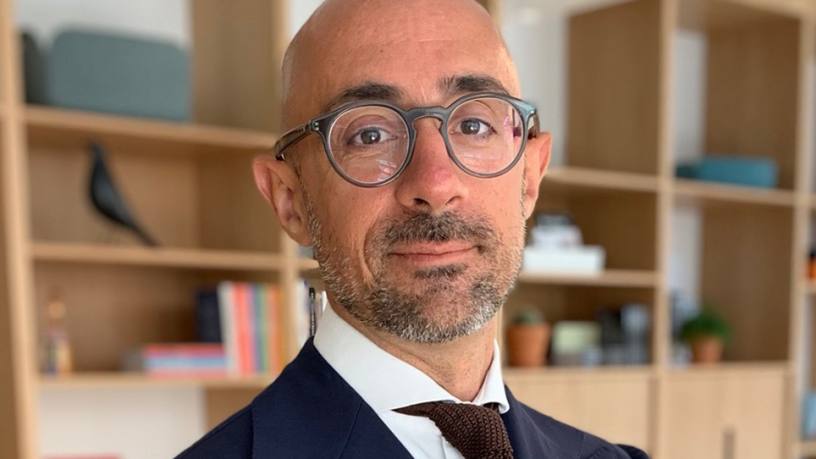First announced in 2019 and live since February 2020, the UAE’s know-your-customer (KYC) blockchain-based platform streamlines the bank onboarding process for companies in the country. Initially a collaboration between Dubai International Financial Centre (DIFC) free zone, KYC solutions provider norbloc and Dubai-based lender Mashreqbank, the consortium has grown to more than 11 members in the UAE.
Astyanax Kanakakis, chief executive and co-founder of norbloc, spoke to John Everington about how the system has simplified the account-opening process for banks and customers, and the company’s plans to expand, both into other emirates and internationally.
Q: How did the UAE KYC Blockchain Platform begin?
A: One of the biggest headaches for businesses operating in the UAE has traditionally been opening a bank account. This has been a concern for both banks and authorities, as it has significantly impacted the ease of doing business in the country.
We’ve put an attestation network in place. If I go to one of the entities in the network and provide KYC information that the entity subsequently verifies, I can then use that information with other institutions in the network. If I make any changes to that information, all parties in the network will be alerted to the change. So, in short, we remove the duplication of effort both on the customer side for providing data and on the execution side when verifying it.
Q: How did norbloc become involved in the project?
A: We founded norbloc in late 2016. At the end of 2017, after working with companies in the Nordic and Benelux regions, we decided to look at the Middle East. We were part of the first cohort of the DIFC’s Fintech Hive accelerator programme, largely because it was a good way to get to work with banks such as Standard Chartered, HSBC, Emirates NBD and First Abu Dhabi Bank.
One of the biggest headaches for businesses operating in the UAE has traditionally been opening a bank account
While we were doing pilots with these banks, Mashreq saw what we were doing and said they wanted to proceed immediately to production in conjunction with the DIFC, which led to the initiation in 2019 of what today has become the UAE KYC Blockchain Platform.
Around the same time, we began parallel discussions with Dubai Economy (DED) — Dubai’s onshore corporate registry — who subsequently came on board. We now have more than 11 local banks and government entities on the platform, with HSBC live as of May.
Agreements with DIFC and DED mean that the service is available for Dubai-registered companies.
Q: Are there plans to work with authorities in the six remaining emirates in the UAE?
A: Yes — contracts have been signed with banks and licensing authorities from other emirates. We expect there to be 16 or 17 members of the consortium by the end of the year.
Q: How widely has the service been used thus far, and what has been the impact on the time it takes to open an account?
A: So far, we have more than 330,000 company licences on the platform — around 50% of all registered corporations in the UAE. By using the platform to register your company, and subsequently share the information that is collected and verified by the licensing authority with a bank, customers are able to obtain an IBAN within hours. The objective is to bring this down to offer instant account opening.
Currently, the service is used just for business accounts; however, the technology can be applied to retail clients as well. In addition, there are many other services that can be built on top of the [KYC data sharing] Fides platform, for example allowing monetisation of verified KYC data towards other obliged entities and sharing of alerts or blacklist information.
Q: What are norbloc’s expansion plans?
A: Before coming to the UAE, we were already working in Norway, Sweden, Belgium, Greece and Cyprus. Since then, we’ve focused on the UAE to get our platform into production, which we’ve now done. The UAE reference case is unique, and testament to the pioneering vision of the government when it comes to implementing new technologies and really pushing the envelope in digital innovation. It is attracting a lot of attention from other markets.
For norbloc, this, together with a more urgent need for digital onboarding services — especially in light of the Covid-19 pandemic — means that discussions with partners and governments in markets such as Portugal, Greece, Malta, Chile and Sri Lanka have accelerated. This is also true for the Middle East and north Africa region, where we are speaking to others who are keen to explore building a similar data-sharing ecosystem.
Q: Are you looking to raise additional funds to support this expansion?
A: To date, we’ve raised just over €4m since we started in 2016, mainly from venture capital funds in Sweden, the US and Greece. We’re planning another round of fundraising before the end of this year.













